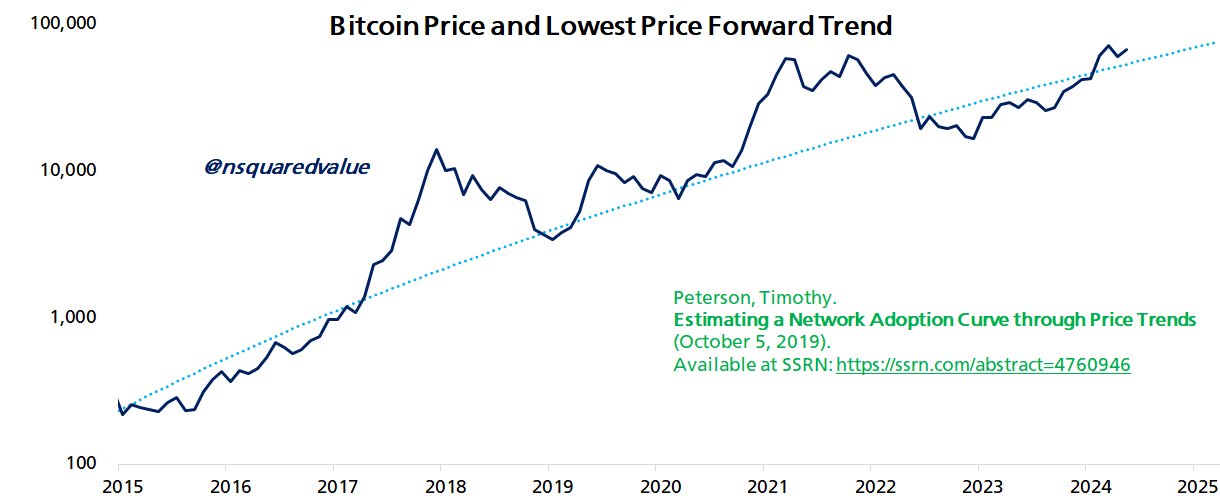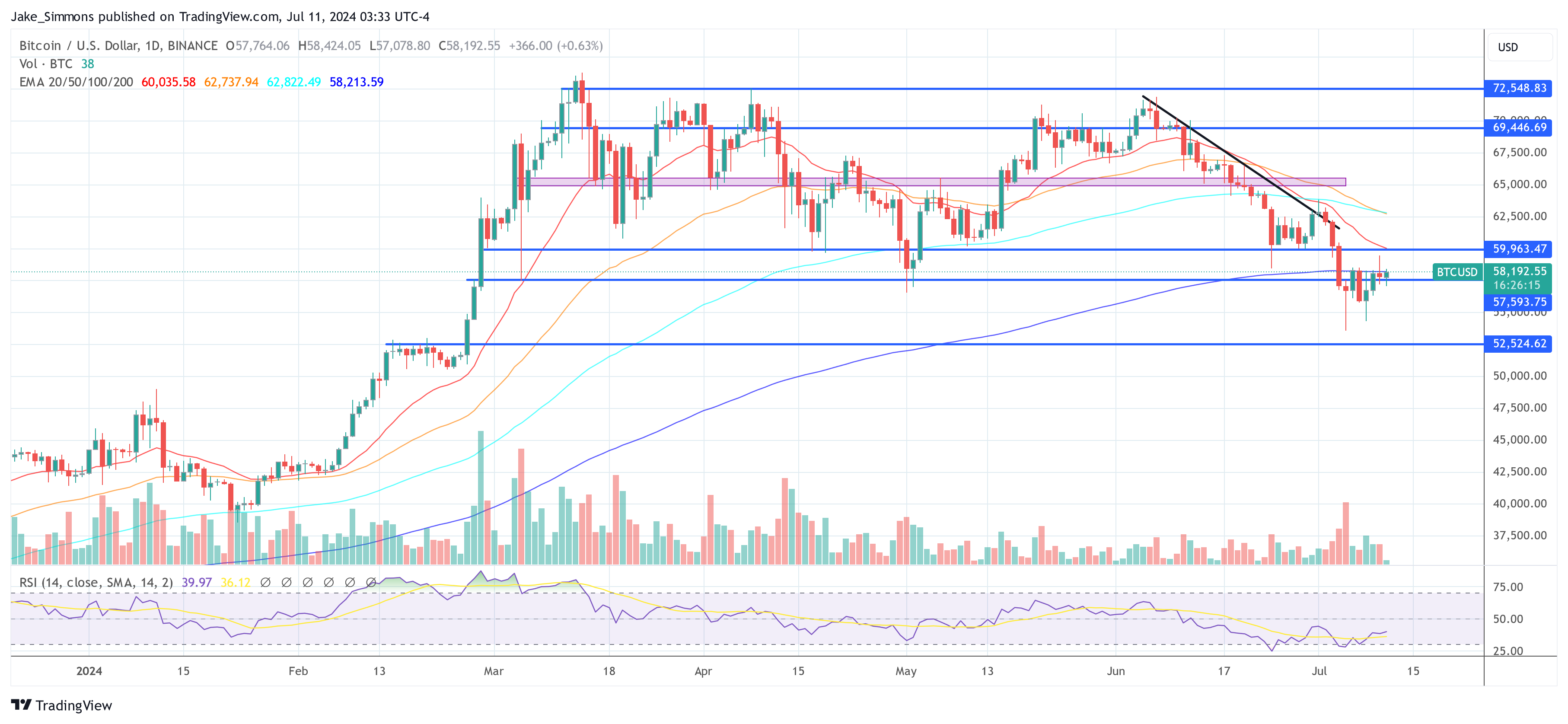In a forecast issued via X on Friday, Timothy Peterson, a respected network economist and prominent author in the field of crypto analytics, predicted a near-certain rise of the Bitcoin price in the upcoming 8 months. “There’s a 90% chance Bitcoin will reach a new ATH before March 2025,” Peterson proclaimed.
Peterson, known for his works including “Metcalfe’s Law as a Model for Bitcoin’s Value,” bases his forecast on the analytical framework detailed in his research paper titled “Lowest Price Forward: Why Bitcoin’s Price is Never Looking Back.” This paper, first published in 2019 and subsequently revised, introduces an innovative approach to understanding the Bitcoin price trajectory by focusing on its historical lowest prices, referred to as the “Never Look Back Price” (NLB). This NLB marks the last instance Bitcoin was traded at a particular price point, after which it never declined to that level again.
The methodology Peterson employs involves plotting these NLB data points on a lognormal scale adjusted by what he calls a “square root time” scale. This unconventional metric facilitates a deeper insight into the long-term growth patterns of Bitcoin, comparing them effectively with the diffusion processes observed in technology adoption across other domains.
Bitcoin Adoption Is Key
Central to Peterson’s analysis is Metcalfe’s Law, which he elaborates as “the value of the network is proportional to the square of the number of its users.” By applying this principle to Bitcoin, Peterson posits that as the digital currency’s user base expands, its intrinsic value is expected to increase exponentially. The paper details the use of a “square root time” model to align traditional time-value money concepts with the non-linear growth rates typical in network economics, presenting a compelling case for Bitcoin’s future valuation trajectories.

Peterson’s approach notably incorporates elements of conservative financial analysis by emphasizing the lowest historical prices of Bitcoin. “By focusing on the lowest price, the analysis inherently adopts a conservative stance, underestimating rather than overestimating value,” Peterson notes, which helps in “minimizing the risk of overvaluation and ensures that predictions do not overly rely on optimistic scenarios which might not materialize.”
In his paper, Peterson also addresses potential anomalies and market manipulations, which can distort price perceptions. By focusing on the NLB, the analysis filters out such distortions, offering a purer view of Bitcoin’s value appreciation unaffected by short-term speculative pressures or external shocks such as the COVID-induced market anomalies of 2021.
The prediction of a new all-time high before March 2025 reflects a broader sentiment of confidence in the sustained growth of the Bitcoin network by Peterson. As adoption curves continue to rise and network effects further entrench the value of Bitcoin, the forecast is not merely speculative but grounded in quantifiable and observed historical trends.
Peterson concludes, “As long as adoption continues, Bitcoin’s value — represented by its NLB price — will go up. If adoption is hindered, then the price will stagnate or drop.”
At press time, BTC traded at $58,192.


 3 months ago
42
3 months ago
42









 English (US) ·
English (US) ·